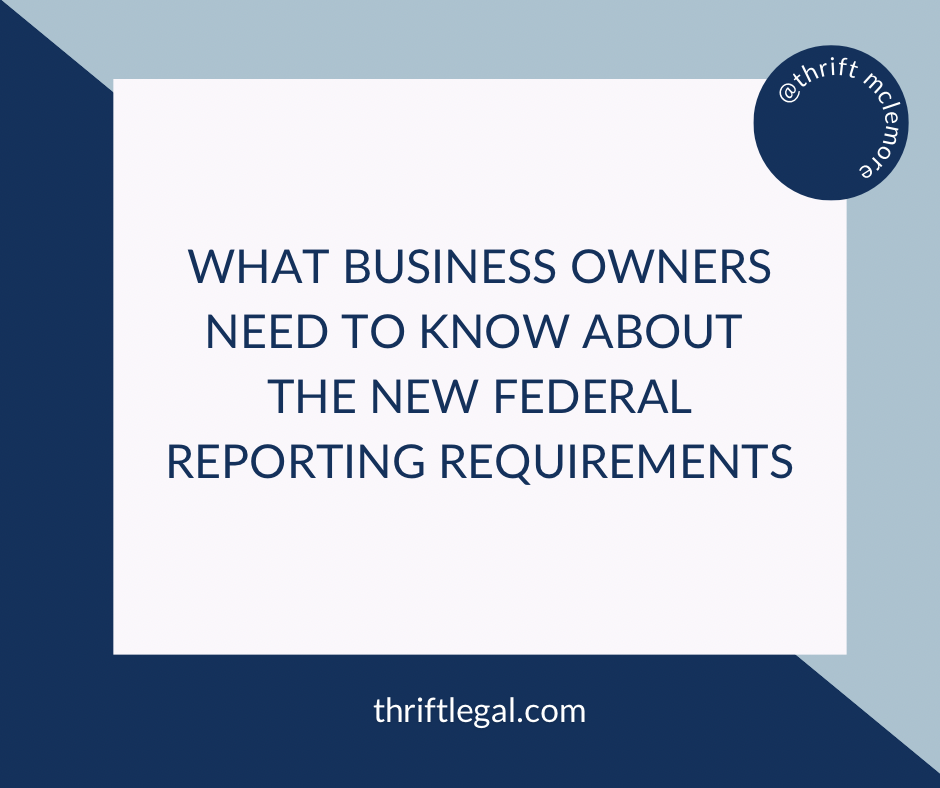On January 1, 2024, a new federal law called the Corporate Transparency Act (CTA) went into effect. The CTA requires many businesses to report information about the business to the Financial Crimes Enforcement Network.
Purpose of the CTA
The CTA aims to combat activities such as money laundering, financing for terrorism, tax fraud, and other illicit activities by preventing the concealment of ownership in businesses.
Under the new law, companies must report information about their beneficial owners to allow governmental authorities access to personal information when investigating financial crimes.
Impacted businesses
This law impacts over 32 million businesses in the United States.
Two types of businesses are required to report and comply with the CTA:
- a business registered with a secretary of state or comparable office in the U.S. This includes corporations, LLCs, limited partnerships, and limited liability partnerships; and
- a foreign business that is registered to conduct business in the U.S.
Exemptions
Businesses that are federally regulated or qualify as a large operating company are exempt from this law.
A large operating company is a business that:
- employs more than 20 full-time employees in the U.S.;
- has filed a federal income tax or information return in the U.S. for the previous year demonstrating more than $5 million in gross receipts or sales; and
- has an operating presence at a physical office located in the U.S.
Below are 23 examples of types of companies that are exempt:
- securities reporting issuers, governmental authorities
- banks
- credit unions
- depository institution holding companies
- money service businesses
- broker or dealer in securities
- securities exchanges or clearing agencies
- other Exchange Act registered entities
- investment companies or investment advisers
- venture capital fund advisers
- insurance companies
- state-licensed insurance producers
- Commodity Exchange Act registered entities
- accounting firms
- public utility companies
- financial market utility providers
- pooled investment vehicles
- tax-exempt entities
- entities assisting a tax-exempt entity
- large operating companies
- subsidiary of certain exempt entities
- inactive entities
Required information
The CTA requires you, as a business owner, to report information about your business’s legal name, trade name, current street address of its principal place of business, jurisdiction of formation or registration, and Taxpayer Identification Number.
Your business must also report additional information about the beneficial owner and company applicant.
Who is a “beneficial owner”?
Your business will report information concerning your beneficial owner. Beneficial owners are individuals who either directly or indirectly:
- exercises substantial control over the reporting company; or
- owns or controls at least 25% of the reporting company’s ownership interests.
What is “substantial control”?
An individual exercises substantial control if the individual:
- is a senior officer;
- has the authority to appoint or remove certain officers or directors of the reporting company; or
- is an important decision-maker for the reporting company.
Who is a “company applicant”?
A company applicant is the individual who filed the creation of your business with the Secretary of State. If there was more than one individual involved in filing our business, you must identify the individual primarily responsible for filing.
Reporting deadlines
The reporting deadlines depend on when the business was established.
If your business was created or registered before January 1, 2024, you will have until January 1, 2025 to report. You do not have to identify business applicants.
If your business is created or registered on or after January 1, 2024, you must report BOI within 90 days of notice of creation or registration. You must also identify business applicants.
Penalties for not reporting
If you fail to report by the deadline, you are subject to civil penalties of a $500.00 fine for each day you fail to report.
You can also be charged criminally for imprisonment of up to two years or a fine of up to $10,000.00.
Our team is here to help!
If you are a business owner and have questions regarding this new law, let us help! Reach out to us today at 678-882-0830 to contact one of our experienced business attorneys to ensure you comply.


